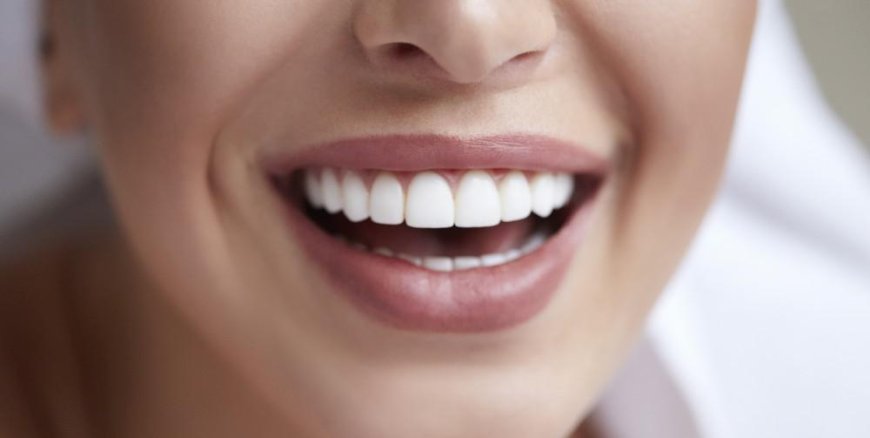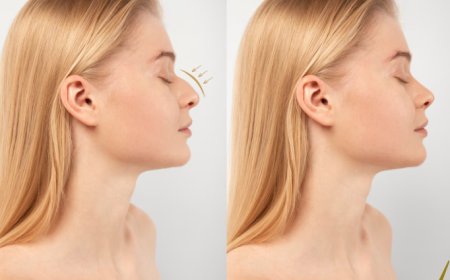What Your Teeth Say About Your Health (It’s More Than You Think!)
Your teeth reveal more than cavities—learn how oral health can signal issues in your heart, gut, and overall wellbeing.

We often think of our teeth as simply tools for chewing food or flashing a smile. But did you know your teeth can reveal a lot more about your overall health than you might expect? From early signs of disease to nutrient deficiencies, your mouth can be a mirror of whats happening in the rest of your body.
Lets explore what your teeth and gums might be trying to tell you and why listening to them is one of the smartest things you can do for your well-being.
1. Bleeding Gums? Its More Than Just Poor Brushing
Bleeding gums are often brushed off as a sign of aggressive brushing or skipping floss. But chronic gum bleeding may be an early warning of gum disease and even systemic issues like diabetes or heart disease. Your gums are full of blood vessels, and inflammation in this area can lead to bacteria entering your bloodstream, potentially affecting your heart.
Regular dental checkups at a trusted Corio dental clinic can help detect such issues early before they become more serious.
2. Bad Breath Isnt Just Embarrassing It Could Signal Something Deeper
Halitosis, or persistent bad breath, can do more than affect your confidence. It might indicate cavities, gum disease, or even digestive problems. In some cases, its linked to sinus infections or liver conditions. If your breath doesnt improve with brushing and flossing, its time to take a deeper look literally.
3. Tooth Erosion Can Signal Acid Reflux or Eating Disorders
Do your teeth feel unusually sensitive, or have you noticed visible wear on their surface? This could be due to acid erosion a gradual loss of tooth enamel from acid exposure. Frequent acid reflux, chronic vomiting, or consuming excessive acidic drinks can all contribute to this condition.
In extreme cases, it may also hint at underlying eating disorders like bulimia. Identifying the source of enamel erosion early can help you treat the root cause and protect your teeth from permanent damage.
4. Cracked or Brittle Teeth May Point to Nutritional Deficiencies
Your teeth need calcium, phosphorus, vitamin D, and other minerals to stay strong. If theyre cracking easily or feeling brittle, it might be a sign that your diet lacks these crucial nutrients. In some instances, it may also be linked to osteoporosis or other bone-related conditions.
Dont ignore these signs your body might be urging you to improve your nutrition or get tested for underlying issues.
5. White Patches Could Be a Red Flag
White patches or unusual spots on your gums, tongue, or inner cheeks might indicate leukoplakia a condition that, in some cases, can develop into oral cancer. While many white spots are harmless, anything persistent or painful should be evaluated by a professional.
A qualified Corio dentist can help you assess whether what youre seeing is minor or something that needs further investigation.
6. Grinding Your Teeth? Its Not Just a Habit
Teeth grinding, especially at night, is more than just a bad habit it can be a sign of stress, anxiety, or sleep disorders like sleep apnea. Over time, it can cause jaw pain, headaches, and even lead to temporomandibular joint (TMJ) disorders.
Your dentist might recommend a night guard or explore treatment options to reduce tension and protect your enamel from further damage.
7. A Dry Mouth Could Signal Medication Side Effects or Disease
A persistently dry mouth isnt just uncomfortable it can also increase your risk for tooth decay and gum disease. Saliva plays a crucial role in neutralizing acids and keeping your mouth clean. If your mouth feels dry despite staying hydrated, it could be a side effect of medication or even an early indicator of autoimmune diseases like Sjgrens syndrome.
8. Loose Teeth? Your Bone Health Might Be At Risk
Adult teeth shouldn't wiggle. If your teeth are shifting, moving, or feel loose, it could be due to advanced gum disease or worse, a sign of bone loss. This may be linked to osteoporosis, a condition that weakens bones throughout the body, including the jaw.
Routine dental X-rays can help catch this early and potentially save your teeth and your overall bone health.
9. Color Changes in Your Tongue or Gums Can Be Telling
Is your tongue pale, redder than usual, or patchy? Are your gums turning darker? These subtle color shifts could reflect everything from vitamin deficiencies to underlying health concerns like anemia or hormonal imbalances.
Its always worth bringing up these observations during your dental visits, as they might provide early insights into bigger health issues.
10. Regular Dental Visits Protect More Than Your Smile
Its easy to see the dentist as someone who simply polishes your teeth and fills cavities. But the truth is, a skilled dentist is often your first line of defense against conditions like oral cancer, heart disease, diabetes, and even certain infections.
Think of your mouth as a health dashboard. It reflects whats happening on the inside and a knowledgeable dental professional can help interpret the signals and guide you toward better health outcomes.
Final Thoughts
Your teeth are more than a cosmetic concern theyre powerful indicators of your internal health. Paying attention to the signs they give you can lead to early diagnoses, better treatments, and overall improved well-being.
Dont wait for pain or visible damage to take action. Partner with a dental team that takes your overall health seriously and offers the care you deserve.








































